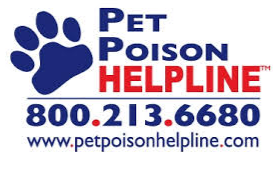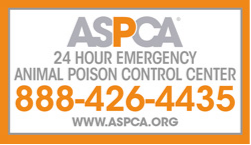Common Medications and Your Pet - Is This Toxic?
- Animal Ark Team

- Mar 24, 2022
- 2 min read

Most everyone has a medicine cabinet with over-the-counter medications and, sometimes, prescriptions, but do you know what is toxic for your pet? As always, we recommend contacting a veterinarian if your pet gets into any medications but we have a quick guide here on what is most dangerous!
The first and potentially largest group is NSAIDs. These are drugs like Advil and Motrin (Ibuprofen), Aleve (Naproxen) and Tylenol (Acetaminophen). Generally, Ibuprofen is more toxic. It has a candy coating that makes it very appetizing for dogs especially and can cause stomach and intestinal ulcers as well as kidney failure. Acetaminophen is much more toxic to cats and can damage their red blood cells which inhibit their ability to carry oxygen.
Antidepressants (SSRIs) can cause a large range of symptoms based on the amount of medication the pet gets into. Moderate toxicity can include sedation or nervous system stimulation (based on the drug), anorexia and lethargy. Severe symptoms can include vomiting, tremoring, seizures, hyperthermia and abdominal pain.
ADHD/ADD medications are stimulants and the symptoms that they cause pacing and circling as well as an increase in heart rate and blood pressure. These medications include drugs like adderall and ritalin.
Our next category is benzodiazepines. These are anticonvulsants, anti-anxiety and muscle relaxants like clonazepam and diazepam. These medications can cause GI upset but can also cause much more severe symptoms like aggression, agitation and cardiac and respiratory depression.
Small doses of birth control are normally not overly toxic to your pets and do not cause any trouble. However, larger doses of estrogen and estradiol can cause bone marrow depression in birds. As with any medications, always call your veterinarian to check and see if they ingested a toxic dose.
Ace Inhibitors like Benazepril are actually used in your pets but can be toxic in higher doses. These are used to treat high blood pressure and overdoses can cause extreme drops in blood pressure as well as dizziness and weakness.
Our last group of medication is Beta-Blockers. Beta-Blockers work by blocking the effects of epinephrine to help lower blood pressure. These medications have similar symptoms as Ace Inhibitors but are toxic in smaller doses and can have even more serious effects.
As with any ingestion of an inappropriate food item, it is important to contact your veterinarian immediately for further instructions. If you believe that your pet may have ingested a toxic substance, contact Pet Poison Helpline at 855-764-7661 or the ASPCA Poison Control at 888-426-4435 followed by your veterinary hospital or an emergency veterinarian.




Comments